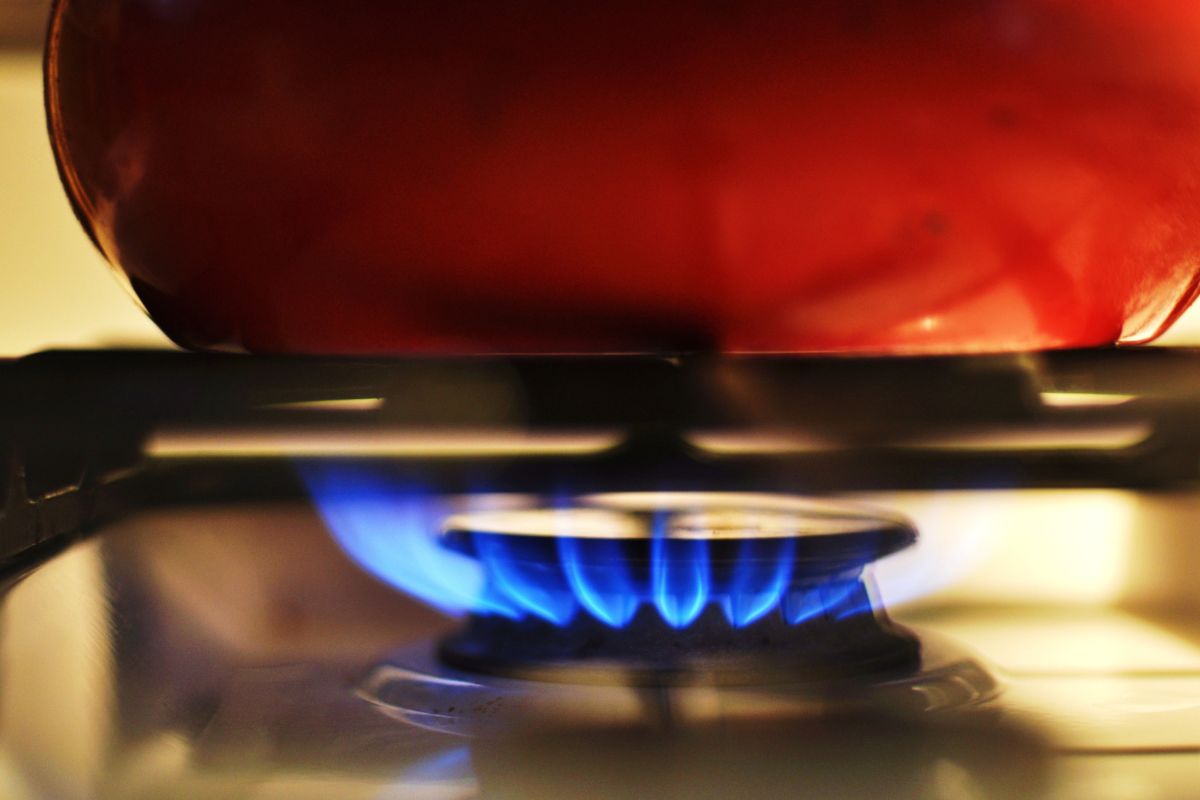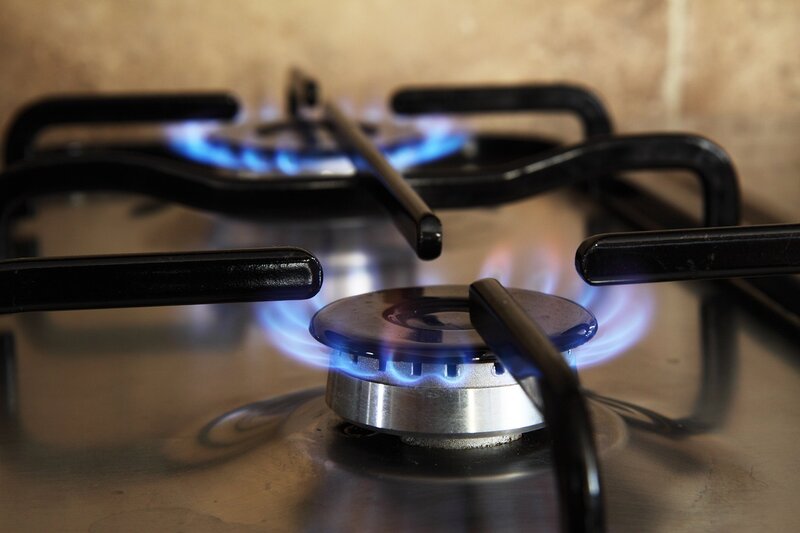
Natural gas deregulation lets you pick your energy supply from a provider rather than your local utility. This generally results in lower rates for customers and, often, better service. Shopping for natural gas seems simple but making sure that you pick the right plan is the tricky part. This article lays out all the things you should consider when choosing a natural gas provider, and once you decide, the rest is an easy sign-up process.
In this article:
What is a Natural Gas Provider?
Natural gas can reach you via one of the two major players: the natural gas utility or the natural gas provider or marketer.
The utility company owns, operates, and manages all the pipelines and coordinates the delivery. And the natural gas supplier is one of the many players in the energy market trying to woo customers with lower prices, incentives, and better service. Unlike a single gas utility holding a monopoly in the market, multiple providers purchase wholesale gas and sell it at competitive prices.
Consumers receive the same quality of gas, but they are fre to choose a provider that meets their energy needs. Remember, this option is only available for the residents of a state with deregulated natural gas.
8 Things to Consider When Shopping for a Natural Gas Provider

Before you sign up with a natural gas provider, the first thing you need to do is to set your own priorities. Once you’re clear about your expectations, only then can you choose what’s best for you. Let’s take an in-depth look at a few things you should know when choosing a natural gas supplier:
1. Customer Service
The quality of customer service is a key tell for how you’re going to be treated at a company. Nobody likes to wait on hold for hours when there’s a problem, and you shouldn’t either. A simple way to test the responsiveness of a provider’s customer service is to call their helpline at different times of the day and see how they respond.
- Note how long they take to answer your call
- How knowledgeable are the representatives?
- How do they handle your concern?
- Take note of the hours the customer service line is open. If it isn’t working at times that aren’t convenient for you, it might not be an ideal provider for you. Prefer companies with 24/7 customer service.
2. Plan Type
When you’re browsing the natural gas supplier’s market, you will get to see two kinds of rate plans. It is imperative to learn all their differences because your plan could either give you some big savings or become a foul case of sticker shock.
Here are the two rate plans and everything you should know about them:
- Fixed-rate Plan: A fixed-rate plan is where you sign a contract with the natural gas company for a specified period. You lock in a fixed unit price that will be applied for the whole term. The upside to such a plan is that you’re protected from the volatile market and won’t be trapped in fluctuating natural gas prices. The main consideration here is the contract length and that you’re getting a low fixed rate.
- Variable-rate Plan: Such plans charge you a different rate every month depending on the market conditions. The biggest benefit of a variable-rate plan is that you won’t be locked into a contract with the company. You can easily make a switch without having to pay any penalty. This means you get to save money when the market prices fall and lose some if the commodity price spikes in a month.
3. Reputation and Ratings
Check out the provider’s reputation and service record. Ask acquaintances, friends, or family if they have used the natural gas service and what their experience was like.
Dig up their online reviews and ratings to gather more customer experiences before you make a decision.
4. Features
Natural gas suppliers often cover more than just the gas price to attract customers. They offer multiple perks such as rebates, loyalty programs, and more.
You can pick a company that offers the kind of incentives that align with your lifestyle, usage habits, family, and home. For instance, you might want to go for a company that uses environmentally friendly practices and conservation. Or, you prefer a company that offers more rewards.
5. Your Energy Usage
Carefully observe how you use energy in your house. Notice the times your household uses more energy, which typically changes with different seasons, or the weekends vs. weekdays.
Or, if you’re trying to change your energy habits, then you can opt for companies that practice energy conservation and promote energy efficiency to lessen your bill. Tracking your gas usage and needs will also help you predict your natural gas bill monthly.
6. Price
The gas you get from different providers or your public utility is exactly the same. The only difference is the price. Be sure you’re aware of all the costs that you’ll be paying for your natural gas service.
For instance, in addition to the cost per therm, there will be service fees and delivery charges. Or, if you sign up for a fixed-rate plan and cancel it before it expires, you might be charged an early termination fee.
Keep in mind that the lowest-priced plans do not always offer the best customer service. Thus, price should not be the only factor upon which you base your decision.
Provider’s Policies
You could end up paying all sorts of hidden costs if you aren’t aware of and don’t fully understand your provider’s policies. Here are a few things to keep in mind:
- Most natural gas providers charge a fee for switching to their services, so make sure you know if and when it applies to you.
- You can also end up with late fees if you don’t know all the policies. Learn how long you will be making the payments and when you’ll be billed.
- Ask about the fees associated with bank drafts and credit card payments.
- If you opt for automatic payments, check your monthly bill to match your gas usage with what you’re paying.
- Find out if there are any penalties or fees if you cancel service or switch providers.
- The Fine Print
Since there are multiple providers and the choice is difficult for consumers, retailers might try to reel you in and take advantage of the chaos. You need to be careful when considering different natural gas plans.
Thoroughly read the fine print, and look for all the fees and charges related to the service and its cancellation. Make sure you check small details. For instance, natural gas rates change according to seasons and you might be charged higher rates for winter months as the demand is high.
Frequently Asked Questions
Fixed-rate plans offer security and are cheaper than variable-rate plans. You’ll be tied to a specific term with the energy supplier and will be required to pay a fee if you cancel the deal.
On the other hand, variable-rate gas plans are open-ended contracts that allow you to switch or cancel without any fee. But they are unpredictable due to fluctuating natural gas prices and may not be feasible for people on a budget.
What’s better for you will depend on your lifestyle, budget, and energy consumption.
• Not reading the contract thoroughly before signing
• Not comparing enough natural gas suppliers and rates
• Not exploring the pros and cons of fixed and floating plans
• Signing up with a famous or go-to energy supplier in your area
Hunting for a natural gas provider can get challenging with so many choices. But you can always ring an expert to help you choose the right plan and company.
Main Photo by: pxhere.